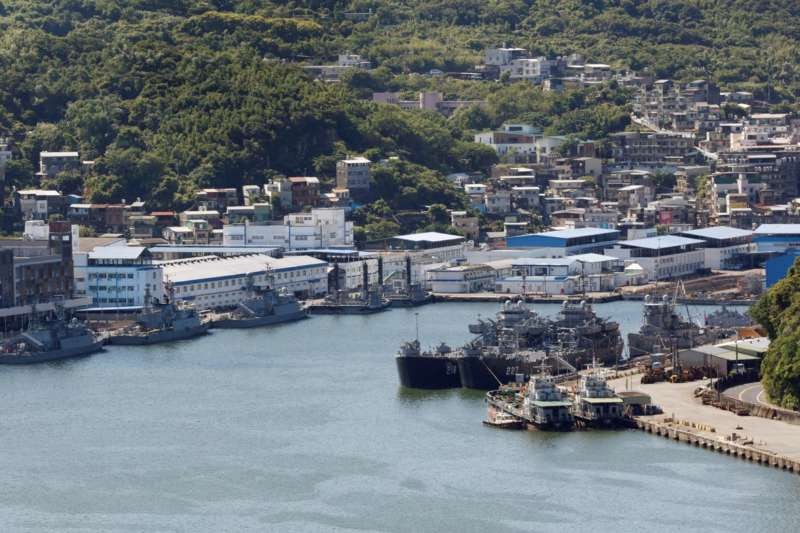In retribution for a visit by U.S. House Speaker Nancy Pelosi, Beijing's aircraft and warships practised an attack on Taiwan on Saturday, according to sources on the island. Beijing reportedly halted negotiations with Washington over security and other matters as a result of Pelosi's visit.
Pelosi's brief, unannounced visit to the self-governing island that China claims earlier this week incensed Beijing, leading to unprecedented military manoeuvres that included ballistic missile launches over Taipei, the country's capital.
The Chinese exercises, which are focused on six different places on the island, are expected to last until Sunday noon.
According to Taiwan's defence ministry, numerous Chinese ships and aircraft carried out missions in the Taiwan Strait, some of which crossed the median line—an unofficial dividing line between the two sides—during what the Taiwan military described as a simulated invasion on the island.
An individual with knowledge of security preparations claimed that Chinese vessels and aircraft continued to "push" into the Taiwan Strait's middle line on Saturday afternoon.
Chinese warships and drones practised attacking American and Japanese warships off the east coast of Taiwan and near to Japanese islands, the source continued.
Taiwan's army issued a warning, sent out ships and air reconnaissance patrol troops to keep watch, and placed shore-based missiles on alert.
Additionally, according to its defence ministry, flares were fired late on Friday to scare off seven drones and an unidentified aircraft that were flying over its Kinmen and Matsu islands. Both island groups are not far from the coast of China's mainland.
The Chinese military claimed to have tested its forces' "joint combat capabilities" on Friday by conducting air and sea manoeuvres to the north, southwest, and east of Taiwan.
Despite Chinese concerns, Pelosi arrived in Taiwan late on Tuesday. This was the highest-level visit by a U.S. official to the island in decades. Her visit has sparked a wave of reprisals, including measures that target Pelosi and her family.
China stated on Friday that it was ending talks with the United States, including communications between military commanders at the theatre level and on climate change, shortly after her group left Japan, the final destination on a week-long trip of Asia.
Speaking while visiting the Philippines, U.S. Secretary of State Antony Blinken referred to the suspension of communication on matters like drugs and transnational crime as "irresponsible" and emphasised the importance of security connections in reducing tension. View More
Blinken claimed that the globe would suffer if China cut off bilateral ties, particularly in the area of climate change.
“Suspending climate cooperation doesn’t punish the United States, it punishes the world, particularly the developing world,” he told a news conference. “We should not hold hostage cooperation on matters of global concern.”
Chinese foreign minister Wang Yi told a media briefing on Friday that Blinken was spreading “misinformation”, adding: “We wish to issue a warning to the United States: Do not act rashly, do not create a greater crisis,” Wang said.
Jing Quan, a senior Chinese Embassy official in Washington, echoed that, telling a briefing: “The only way out of this crisis is that the U.S. side must take measures immediately to rectify its mistakes and eliminate the grave impact of Pelosi’s visit.”
‘FUNDAMENTALLY IRRESPONSIBLE’
White House national security spokesperson John Kirby countered that China’s suspension of some communication channels was “fundamentally irresponsible”. read more“There’s nothing here for the United States to rectify. The Chinese can go a long way to taking the tensions down simply by stopping these provocative military exercises and ending the rhetoric,” Kirby told reporters.
China has not mentioned a suspension of military talks at the senior-most levels, such as with U.S. Defense Secretary Lloyd Austin and Chairman of the Joint Chiefs of Staff General Mark Milley. While those talks have been infrequent, officials have said they are important in the case of an emergency.
Kirby said it was not atypical for China to shut down military talks at times of tension but “not all channels” between military leaders had been cut.
“Part of this overreaction has been strictly limiting its defence engagements when any responsible state would recognise that we need them now the most,” said acting Pentagon spokesman Todd Breasseale.
Speaking in Japan after meeting Prime Minister Fumio Kishida, Pelosi said her Asia trip was “not about changing the status quo in Taiwan or the region”. read more
Japan’s defence ministry reported that as many as four missiles flew over Taiwan’s capital, which is unprecedented. It also said that five of nine missiles fired toward its territory landed in its exclusive economic zone.
Kishida told visiting U.N. Secretary-General Antonio Guterres that he strongly condemned China’s missile launches as “a serious issue concerning Japan’s security and the safety of Japanese people”, the foreign ministry said.
Taiwan has been self-ruled since 1949, when Mao Zedong’s communists took power in Beijing after defeating Chiang Kai-shek’s Kuomintang nationalists in a civil war, prompting their retreat to the island.
Beijing says its relations with Taiwan are an internal matter and that it reserves the right to bring the island under its control, by force if necessary. Taiwan rejects China’s claims saying only Taiwan’s people can decide their future.



